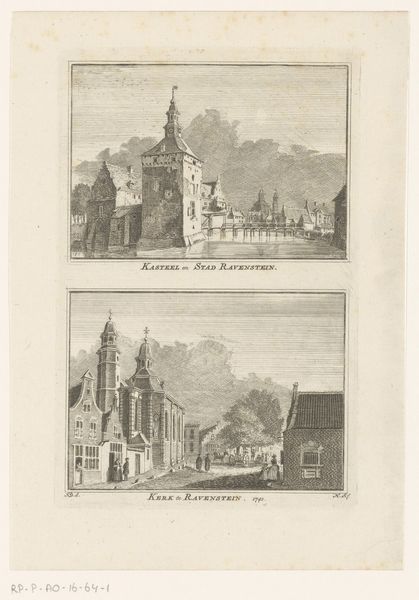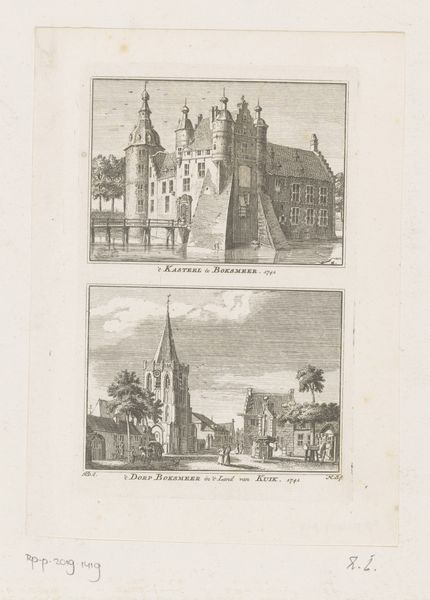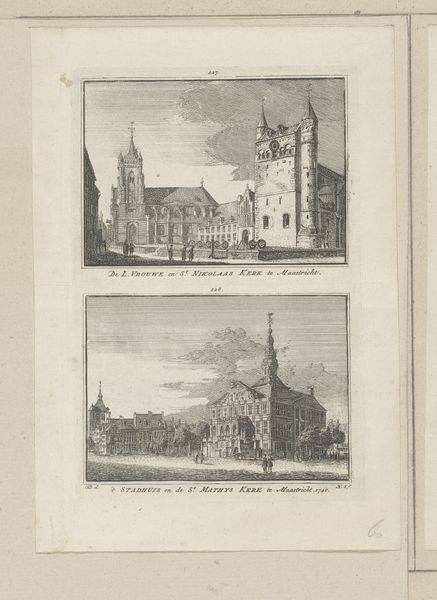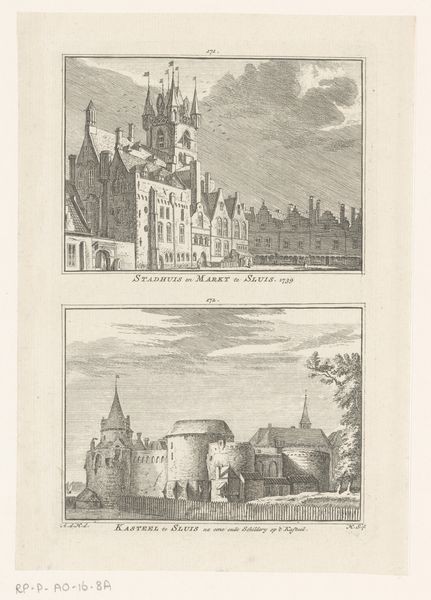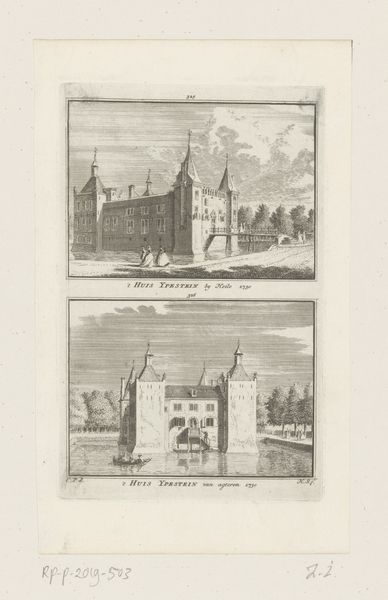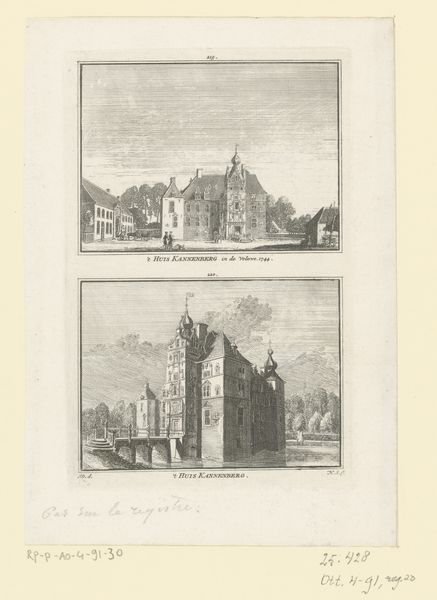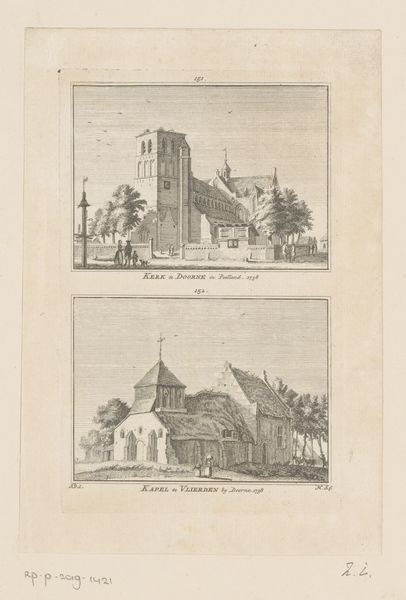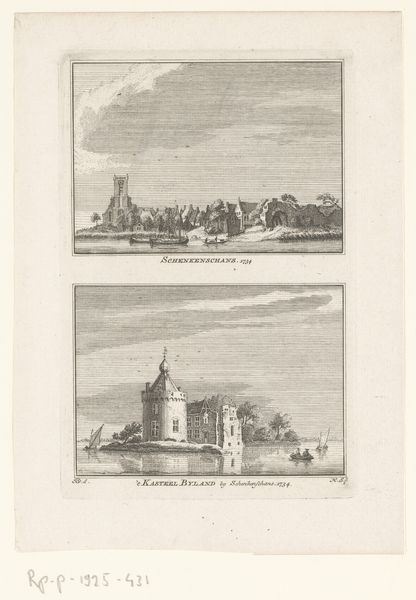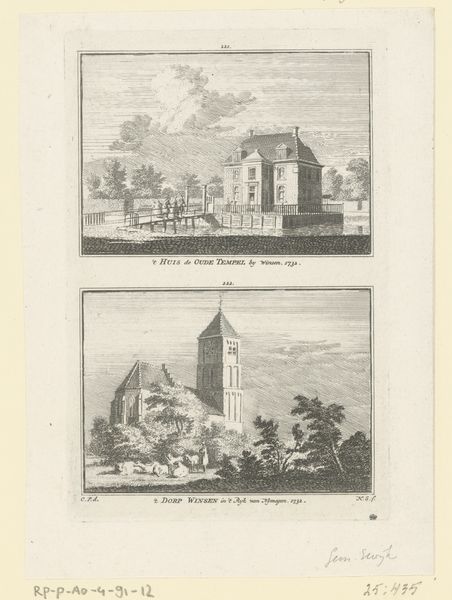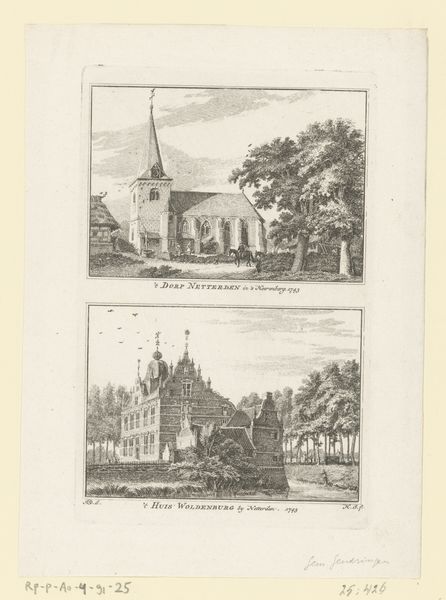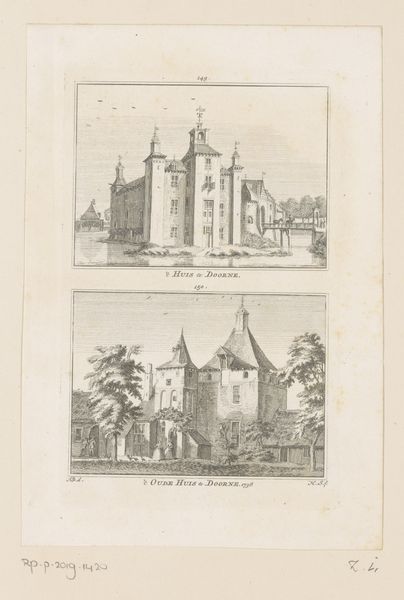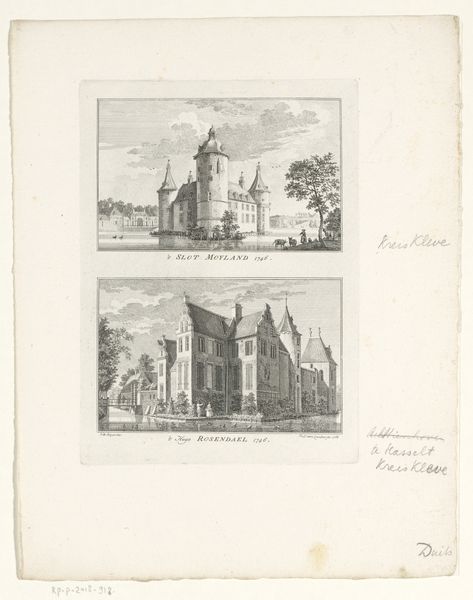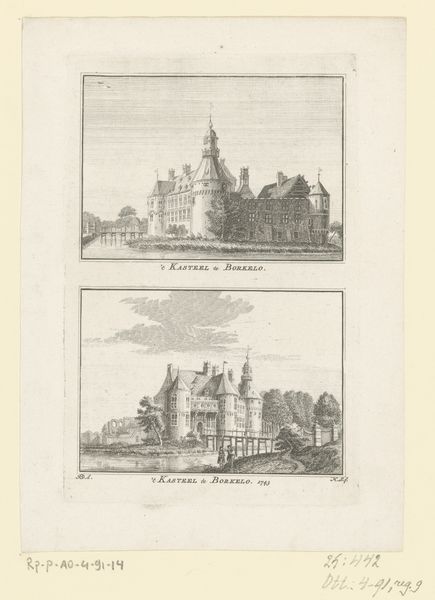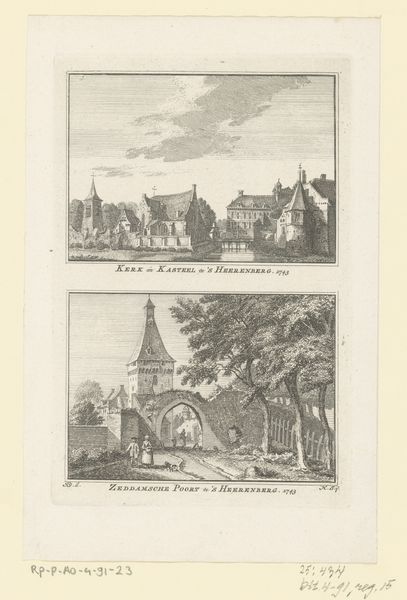
drawing, print, etching, paper, engraving, architecture
#
drawing
#
baroque
# print
#
etching
#
old engraving style
#
landscape
#
paper
#
cityscape
#
engraving
#
architecture
Dimensions: height 168 mm, width 110 mm
Copyright: Rijks Museum: Open Domain
This print of the Mariënhage church and monastery in Eindhoven was made by Hendrik Spilman in the 18th century. Spilman made this image using an etching technique to incise lines into a metal plate, which would have been a labor-intensive process involving skilled craftsmanship to produce multiple copies. You can see the character of the etched line throughout, which gives the buildings their detailed texture and form. The fine lines create tonal variation and allow the artist to capture light and shadow, giving depth to the architectural details. The lines were created by drawing into a waxy ground and then bathing it in acid. By choosing printmaking, Spilman ensured the image could be widely circulated, fitting into the growth of visual culture during the Enlightenment. This print is an early form of mass media, a precursor to photography that democratized images and made them accessible to a broader audience. So, think about the social context that gave rise to this object, and how the hand-made relates to the machine-made.
Comments
No comments
Be the first to comment and join the conversation on the ultimate creative platform.
